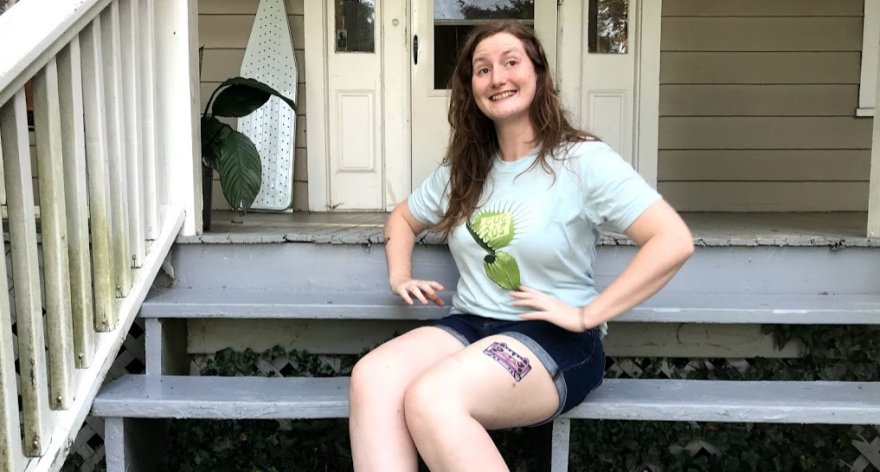Brittany Jackson and two friends launched a film festival five years ago to showcase work they made, along with short films and music videos from friends. Today, the Cat Fly Film Festival largely serves the same purpose, though that group of friends has widened, thanks in part to the festival.
“When we first had the idea, we were like, ‘We’re gonna screen to empty rooms,’ like this is gonna be the band that nobody comes to their show for,” Jackson said with a laugh. “But everybody turned out and loved it, and so we were like, ‘Well, we’ve probably gotta do it again, right?’”
Jackson is like a lot of people trying to make films in and around Asheville. Most projects happen on meager budgets, so casts and crew often can’t devote more than a few nights and weekends.
Cat Fly caters to that reality. Of the two dozen works accepted into this year’s festival, only one is feature-length. Jackson’s festival piece this year is a music video she produced for Asheville musician Dana Marie Seals.
Only a quarter of the 95 films submitted into Cat Fly this year made the cut. Some came from Asheville’s annual 48-Hour Film Project and most were made in the Southeast. “A Place to Belong,” written by and starring Hanna Zahory and directed by Simon Bonneau, focuses on a first-generation Afghan immigrant questioning her decision to move to Western North Carolina. “The Night Courier” is a psychological thriller from the couple Mason and Tabitha McDonald. In her film “Birthing,” Asheville filmmaker Andie Morgenlander directs an intense and intimate look at one woman’s miscarriage.
Like many locals working in film, Jackson has another job to pay her bills—hers is at a print shop—and she said she pours most of the money she earns behind a camera back into buying gear.
“It’s very hard to realize your larger vision when you have to shoot on the weekends,” Jackson said. “The season changes really drastic here. Like, one minute it’s summer, the next minute it’s orange fire leaves everywhere. It’s very obvious when the season changes when you have exterior shots. And people’s hair grows. Like, people get haircuts.
Jackson said many locals driven to a career in filmmaking move to Atlanta, where the industry thrives. Like many states, North Carolina offers a tax credit for in-state spending by filmmakers, but depending on the scope of a given project, those incentives don’t kick in for budgets under $1 million. The threshold in Georgia is $500,000.
Jeff Alexander is an actor who has been a festival host since its beginnings. He and a colleague moved to Atlanta a couple years ago to be closer to most of their paychecks, but moved back to Asheville at the start of the pandemic.
Alexander is the lead actor in “Give and Take,” by Asheville filmmaker Andrew Shearer, the only feature-length entry in this year’s festival.
“Cat Fly as a film festival focuses on community and, because of that, it has created a fantastic community around it,” Alexander said. “You end up meeting people you end up working with very quickly, so it does directly help your career.”
While Jackson said she’s still waffling on a potential move to Atlanta, her commitment to the festival is strong.
“I have to choose between the place I love and the career I love,” she said. “I’m just not ready to leave home yet.”
Cat Fly has expanded to a fourth night. Beyond the curated screenings, the fest features three workshops, an open-screen event that runs like an open-mic and a rooftop pool party open to anyone attending.






